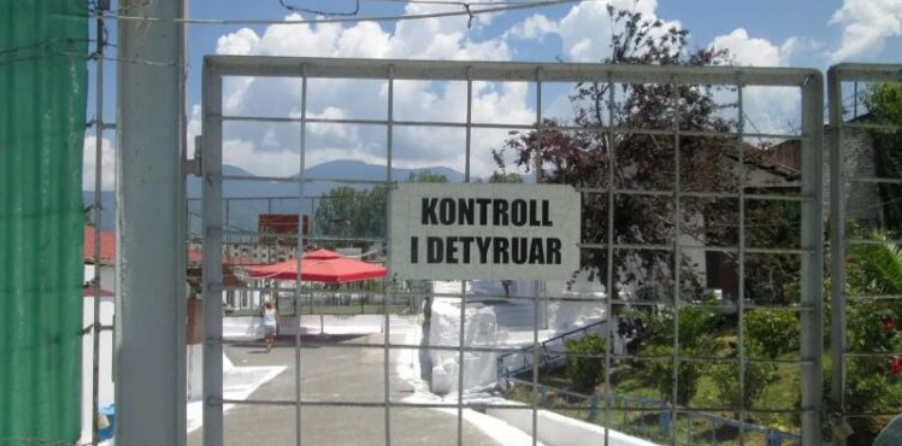Nevila Gjata
On October 2 of this year, the British newspaper The Telegraph stated that the United Kingdom is financially compensating Albania in order to repatriate 200 of its most dangerous inmates.
The essence of the Telegraph article highlighted the UK’s attempts to reduce its expenditures concerning Albanian prisoners, particularly those sentenced for serious offenses.
According to ‘The Telegraph‘ the expense for a prisoner in the United Kingdom amounts to £109.
The article discussed the establishment of the Open Prison as part of this effort, explaining the categories of individuals who would qualify for it.
In the same article, both the assistance for the ‘Ali Demi’ Open Prison and the British efforts to transfer not just a few but 200 high-risk prisoners are addressed, based on what The Telegraph describes as a two-year agreement between the two countries.
Given its sensitive nature for Albanians, the article from ‘The Telegraph’ is commonly translated in various Albanian daily media, often with modified headlines, which leads to the perception that the Open Prison will handle the transfer of these 200 high-risk inmates.

screenshot of the headline of the translated article
But are they actually the same thing?
What does ‘open prison’ signify, and why might this term be used for clickbait purposes in this instance?
An Open Prison means that during the day, the inmate is allowed to move freely outside the prison walls and fences (essentially, to leave the prison premises), while in the late afternoon (by 5:00 PM), they are required to return and spend the night in their cell.

screenshot of the headline of the translated article
The headlines from several Albanian media outlets claiming that 200 dangerous prisoners will be transferred to this type of prison contribute to a misleading narrative that suggests individuals convicted of serious crimes (including some specific names referenced by British media, recently sentenced to 36 years for murder) will be moved to Albania and allowed to move freely during the day.
To address this issue, it’s essential first to understand who benefits from being in an Open Prison. Additionally, do the prisoners in this category include Albanians serving their sentences in the United Kingdom? If so, what criteria apply?
In response to these questions, Faktoje.al submitted a request for information to the General Directorate of Prisons, which provided a thorough answer regarding the operation of the Open Prison
To begin with, the Directorate of Prisons explains that the ‘Ali Demi’ Open Prison (which will soon be operational) is an initiative funded by the Albanian government, while the training of personnel is handled by the British state.
‘The staff at this institution is receiving training on how to manage inmates, who will work in private companies during the day and return to the facility in the evening. The training is being carried out by experienced British instructors specialized in correctional systems, particularly in the management of open prisons’.

Screenshot of the response from the General Directorate of Prisons to Faktoje.al
Then, we address the essence of the matter.
‘The capacity is set for 70 inmates. The open prison is designated for convicts who have less than 6 months of their sentence left and have shown progress in rehabilitation and reintegration programs. It is important to clarify that this prison is not connected to the inmates who will be transferred from the United Kingdom’, states the response to the information request submitted by Faktoje.al

screenshot of the response following the information request from Faktoje.al
At the same time, there is an agreement in place between the two countries for the transfer of Albanian inmates.
One year (2022) after the signing of the joint document by Prime Minister Edi Rama and his then British counterpart Rishi Sunak, which included security matters, the government made a decision to approve, in principle, the implementing agreement between the Republic of Albania and the United Kingdom of Great Britain and Northern Ireland concerning the transfer of convicted persons.
What is the procedure in this case, and who benefits from the agreement?
‘Individuals who are transferred may have committed a range of offenses. Each convicted individual must give their consent for the transfer. After the transfer, our courts will review the cases to decide where the sentence will be served and how many years remain to be completed in Albania,’ explains the Directorate of Prisons.
The response to Faktoje.al also emphasizes that the agreement does not include individuals classified as high-risk, and there is no specific number set for transfers. ‘Everything depends on the consent of the inmates and their individual cases,’ the General Directorate of Prisons highlights.










